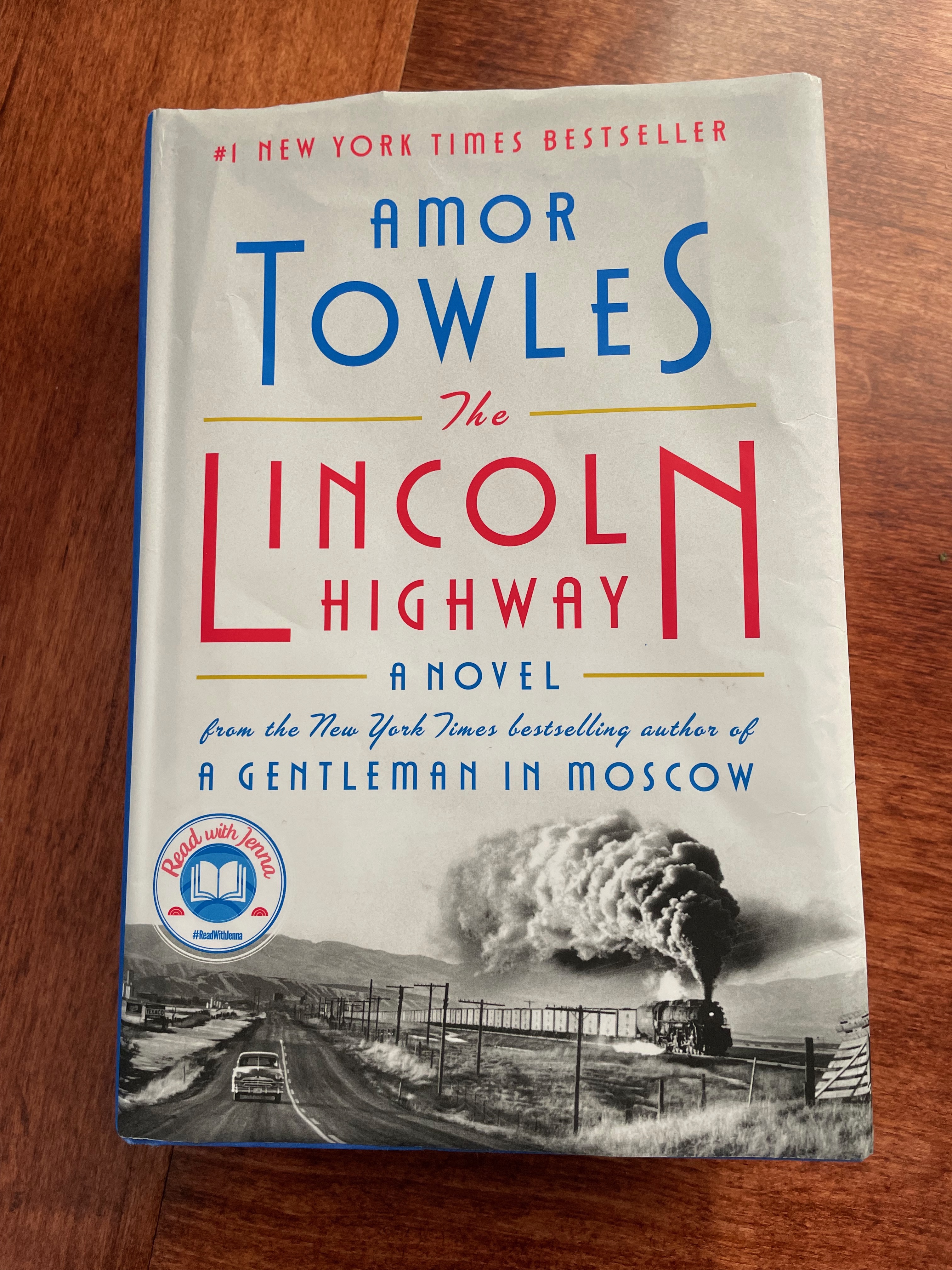The Lincoln Highway – How Life Happens Getting To the Destination

When I recently finished The Lincoln Highway, a novel by Amor Towles, I realized how little time we actually spent on the highway that gave the book its name. No spoilers here, but I think many would agree how metaphorical that is for life. The goals and dreams we aim for and spend our life trying to achieve are often at the end of a road.
Life happens getting to that destination. Or as some may say, the journey is the reward.
That was my experience reading The Lincoln Highway as well. Towles presented the story as an adventure two brothers were planning to take along this historic highway, which was the first American interstate to stretch from coast-to-coast.
For them, life did not go as planned. Events largely out of their control forced them to react and adapt. As Count Alexander Ilyich Rostov said in Amor Towles’ previous bestseller, A Gentleman In Moscow:
“A man must master his circumstances or otherwise be mastered by them.”
The Lincoln Highway explores similar themes, except instead of telling them from inside a historic Moscow hotel (Metropol Hotel Moscow), the setting is 1950s America. Like any good adventure tale it begins in medias res. Remember that phrase when you read the book.
Towles drops you right in on the action as the elder brother, Emmett, returns home after serving time on a juvenile work farm. His little brother, Billy, is waiting for him, with dreams of finding their mother who had abandoned the family a few years prior when she moved to California. Their father had recently passed away. They were looking for a fresh start.
Two other characters join them, or more accurately, invite themselves on the journey. They had escaped the juvenile work farm and stowed away in the car that brought Emmett home. These two characters – Duchess and Wooly – enrich the story, both because of their different backgrounds and opposite dispositions.
Duchess is street smart from growing up in cities, clubs, and bars while his thespian father dragged him around the country, until he didn’t. He was dropped off at an orphanage as a young boy. Wooly grew up in a waspy and aristocratic family, but life was never easy for him. He struggled to fit in, was prescribed “medicine”, and always seemed to fail those closest to him, especially family.
Towles tells the story from each of these character’s perspectives. When the story moves to New York City, and the boys meet other characters along the way, Towles gives their perspectives as well. This literary device helps the reader empathize with each of the characters, even when their actions seem questionable at best.
It also helps Towles explore another key theme: whether someone can have too much virtue. The character, Duchess, in particular is always seeking to “balance accounts” with others. Unfortunately he acts as his own arbiter. Even with the best of intentions, he often engages in vigilantism and other disruptive acts with unintended consequences. By reading certain segments of the story from his perspective though, it is impossible not to empathize with his thinking to some degree, despite your moral compass questioning the true virtue of his actions.
Some people may not like this style of storytelling. In fact, some reviews were critical because of what they viewed as extraneous or “side” characters who did not add to the story.
What they saw as a weakness, I found as a strength. The novel certainly took me for a ride I was not expecting. I also thought it would be told primarily from the main protagonist’s perspective (Emmett). And I thought we would be traveling along the Lincoln Highway to California. But as with many journeys in life, the unexpected happened.
Duchess and Wooly, in addition to some of the other “side” characters we met along the way (Ulysses, Pastor John, etc.), were crucial to the story. Their varying perspectives enlivened and paid homage to the 1950s setting. They challenged the main characters – Emmett and Billy – and forced them to be resourceful and master their circumstances. In the same way the rest of us have to adapt to the challenges of life.
“Wouldn’t it have been wonderful, thought Woolly, if everybody’s life was like a piece in a jigsaw puzzle. . . .one person’s life would just fit snugly in its very own, specially designed spot, and in so doing, would enable the whole intricate picture to become complete”
It is the mark of a good book if you miss the characters and their world once the story ends. I felt a part of my life was missing when this novel came to its conclusion. It’s a testament to Towles’ masterful ability to tell a story.
So read this book if you want to travel with endearing characters – some good, many bad, but few ugly. All of them are searching for fresh starts, and figuring out how they will fit into this jigsaw puzzle of life, as Wooly described.
Don’t read this book though if you’re expecting to travel comfortably past each mile marker along the Lincoln Highway. Life is never so linear. This book isn’t either, and that’s what makes it great.
The journey is the reward.


